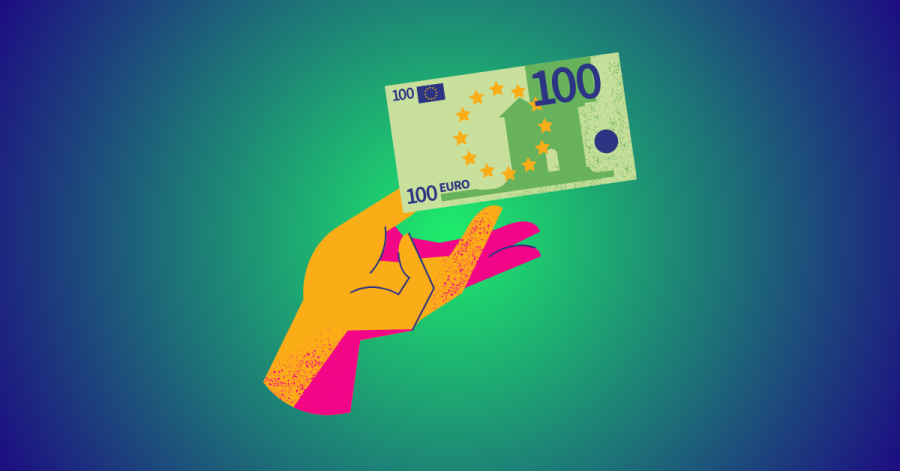Securing funding for a startup is no easy feat. Especially when competing in the EU grants market. In this guide, let me navigate your through EU funding landscape.
Tip #1. Be reasonable
Reasonability is crucial throughout the application process. At first, it’s important to evaluate your development stage reasonably. EU grant funding for startups often uses the Technology Readiness Level (TRL) scale, which ranges from 1 to 10:
- The lower levels (1–3) correspond to basic research and concept validation.
- The higher levels (8–10) indicate that the system has been proven in an operational environment.
The higher your TRL is, the more funding you may qualify for.
You will also need to be reasonable in case you succeed. After the grant agreement is signed, the funding will be provided in installments. Each part will be given when the project hits certain KPIs. If the project fails to meet them, the funding is on hold.
This is why it is important to set clear and realistic goals. Don’t aim too high or rely on luck.
Tip #2. Ask funding for R&D, not for BizDev or marketing
EU grants for startups are not charity; these funds’ aim is to foster innovation. With the EU Climate Law in place, projects focused on green energy, climate tech, and sustainability are now a priority. Such projects often have a strong R&D component, which makes them a good fit for EU projects.
The ongoing AI boom is another key focus for EU grants, as Europe aims to stay competitive in the global AI race. As a result, many programs are specifically designed to support AI-driven companies.
Tip #3. Seek grants even if you have venture capital
There is no such thing as extra money. Securing venture funding doesn’t mean a founder cannot apply for grants. I’ve seen several cases where founders with existing VC funding were very active in the EU grants market. In my opinion, this strategy provides greater flexibility.
If you are a founder that finds themselves running out of VC money, EU funds can help keep the project afloat. Having a backup plan also puts founder in a stronger position when negotiating with potential investors.
Another important factor – as I’ve mentioned before- is that EU funds typically focus on R&D, whereas venture capital is more inclined to support marketing and business development. In other words, EU funds can support the technical part of the project, while the VC helps to sell it.
Tip #4. Speak the EU institution’s language
To complete a successful grant application, a founder needs to understand the logic and aspirations of EU institutions – what donors are looking for and how they evaluate projects. Founders often focus too much on product features, while EU funds prioritize the technical expertise of the team, interaction and traction.
If you’re working on a femtech project, but your CTO has 10+ years experience in e-commerce — this could raise concerns. You may gather true tech rockstars, but if your team has traction of successful collaboration, donors may consider it inconsistent. As EU funds want to support sustainable and successful teams.
To meet their expectations, your pitch deck should include a project roadmap, market fit, a well-defined business model, and budgeting (covering not only expenses but also revenues).
Tip #5. Don’t give up!
From my experience, very few projects succeed in the EU funding race. Let me give you a recent example: there was a call for a relatively small grant, and 1,500 projects applied. Only 45 made it to the second stage, and only 10 projects were awarded. A success rate of around 0.6%.
For larger programs, the competition is even bigger. The number of applications can triple, but the number of grants awarded doesn’t necessarily increase.
I can recall cases where only 20 grants were awarded, and our projects finished in 21st place. This doesn’t mean the project is bad or irrelevant. Sometimes, it’s just a matter of bad luck.
EU funding: Which programs are available?
These are the major EU programs:
Most programs require businesses to have an EU-registered legal entity, with the exception of Horizon Europe, which also works with the Western Balkans, Ukraine, and Moldova.
What paycheck can a startup expect?
The variety is huge. There are small grants (50–150k euros) designed for early-stage startups and programs offering up to 50 million euros in financing.
The funding amount depends on the project stage. Larger grants are typically awarded to ready-to-market projects to help them achieve better results more quickly. The more developed and substantial your project is, the more funding you are eligible to receive.
Application Process
- Carefully complete the application form while considering the provided advice and guidelines.
- First evaluation stage. The application is reviewed to ensure it meets all formal criteria.
- Second evaluation stage: a detailed assessment of the technology and pitch deck. This stage may involve a call or an in-person meeting. If there is a match, the donors proceed to examine the technologies and business model further.
- Final stage – demo day. This stage can be conducted either online or offline. Dozens of projects pitch their ideas to commission, hoping for a positive decision.









